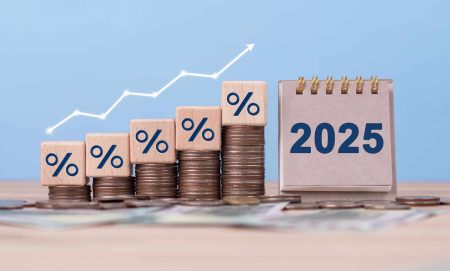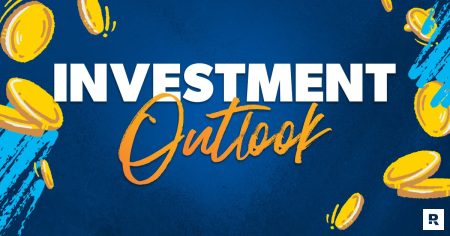Credit Sesame’s personal finance news roundup June 29, 2024. Stories, news, politics and events impacting personal finance during the past week.
No increase in key inflation measure May 2024
The Bureau of Economic Analysis released the latest Personal Consumption Expenditures (PCE) price index data. The PCE price index is the Federal Reserve’s preferred yardstick for inflation. The new figures show that the index was essentially unchanged in May, following an increase of 0.3% in April. The core PCE price index, which excludes the volatile food and energy sectors, was up by 0.1%. Over the past twelve months, the overall and the core PCE price indexes are up by 2.6%, marking a slowing trend for inflation. See details at BEA.gov.
IRS cracks down on bogus ERC claims
The IRS has extended a moratorium on processing claims for the employee retention credit (ERC). The pause allows the IRS to sort through hundreds of thousands of existing claims it believes are probably fraudulent. The ERC is a tax credit designed to encourage businesses to keep employees on the payroll during the pandemic. The IRS believes 10% to 20% of the 1 million claims it has investigated are probably undeserved. Another 60% to 70% look risky enough to warrant further examination. Businesses filing fraudulent claims face having to refund any money received, along with interest and penalties. The IRS offers a withdrawal program that allows firms with second thoughts about the validity of their ERC claims to withdraw those claims without penalty if they haven’t yet received the money.
Swipe fee settlement blocked by judge
A federal judge blocked a $30 billion settlement between retailers and credit card issuers on June 25. The settlement would have forged an agreement on the size of swipe fees and the ability of merchants to add surcharges to swipe fee transactions. The ruling sets the stage for more disruption in the credit card industry. While merchants are lobbying for outside regulation to drive down swipe fees, credit card companies claim such artificial price setting could hurt consumers. They point out that swipe fees help pay for fraud protection, investment in new technology, and credit card rewards. The judge gave parties in the lawsuit till the end of the week to respond with a new proposal. See article at BloombergLaw.com.
Consumers pessimistic about the future
The Consumer Confidence Index slipped slightly in June 2024. The overall index declined slightly, from 101.3 to 100.4. Consumers grew more confident about the current economic situation, while they became gloomier about the future. The Present Situation Index, which assesses current business and labor conditions, rose from 140.8 to 141.5 in June. However, the Expectations Index, which measures the outlook for the months ahead, fell from 74.9 to 73.0. An Expectations Index level below 80 is traditionally associated with recessions. That index has now been below 80 for five consecutive months. The overall decline in confidence was due to people aged 35 to 54. Those under 35 and those 55 and over reported a rise in confidence during June. See details at Conference-Board.org.
Home prices continue to rise slowly
Newly released data from S&P Global showed that home prices continued to rise in April 2024, though the rate of increase is slowing. Nationally, home prices rose by 1.2% in April, though the increase was just 0.3% after seasonal adjustment. As a result, home prices continue to set new all-time highs. Year-over-year, national home prices were up 6.3%, slightly lower than the 6.5% annual gain of the previous month. All 20 markets tracked by S&P Global showed higher home prices for the latest month and 12-month period. Boston had the biggest percentage gain in April, with a 2.2% increase in home prices, while Tampa experienced the slowest growth at 0.7%. Over the past 12 months, San Diego has had the hottest housing market with a 10.3% gain, while Portland showed the slowest growth at 1.7%. See housing data at SPGlobal.com.
Consumer credit still showing signs of stress
Rates of serious payment delinquencies on credit cards and unsecured personal loans declined in May 2024, while they increased for auto loans and mortgages. Delinquencies on auto loans and mortgages potentially have more severe consequences for consumers since those loans are secured by valuable property. Even the decline in personal loan delinquencies has a catch. The improved performance of these loans is attributed to lenders raising their standards for approving these loans rather than because borrowers overall are doing better. See Credit Industry Snapshot at TransUnion.com.
Delinquencies increase for Prime, Near Prime, and Subprime
The VantageScore Credit Gauge report showed that new payment delinquencies rose for most credit tiers in May 2024. Only Superprime customers with credit scores above 780 showed a decline in delinquencies of 30 to 59 days past due. All other tiers–Prime, Near Prime, and Subprime–showed increases in new delinquencies during May. Also, credit scores became more polarized during the month. Both the Superprime and Subprime tiers grew, meaning that the portion of consumers with credit scores somewhere in between (600 to 780) declined. See VantageScore Credit Gauge report at VantageScore.com.
Weekly news headlines from Credit Sesame
Read the full article here










